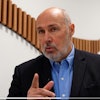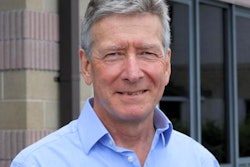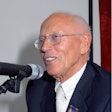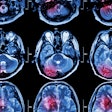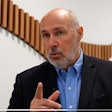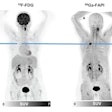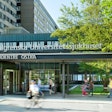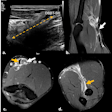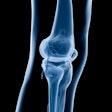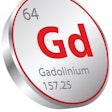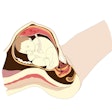
Recently, a friend sent me a copy of a radiology report that had generated a bit of heat when circulated on social media. You might have seen it too.
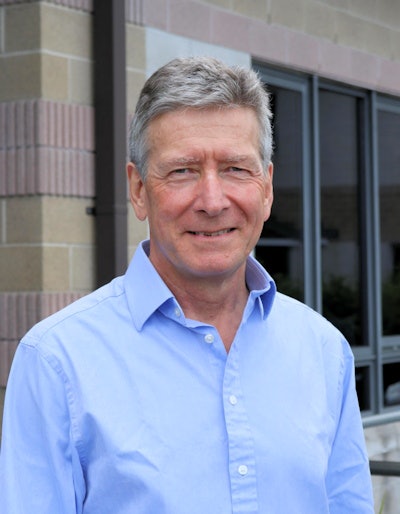 Dr. Giles Maskell.
Dr. Giles Maskell.Without quoting the report in full, it would be fair to say that the radiologist didn't hold back in conveying frustration at the perceived ineptitude of the clinical assessment that had preceded the request.
The debate online concentrated on the question of whether the report transgressed accepted views of professionalism. The general drift was a move from initial sympathy for the radiologist to a feeling that the individual had probably gone too far by expressing so much frustration in the report. A telling contribution wondered what the patient might think if the person got to see it.
We all get frustrated by requests from time to time. Some of us have certain triggers -- often meaningless phrases used by referrers -- that tend to raise our blood pressure. One of my colleagues has a particular aversion to the phrase "hitting sepsis markers" as the justification for a chest x-ray. Exactly what is being hit, by whom, with what, and how hard, he wonders.
High-performance sport
Any elite athletes reading this will be familiar with the Yerkes-Dodson curve (or "Law," if you want to give it a bit more authority). The principle -- somewhat changed from its original description of the behaviour of Japanese dancing mice -- is that performance improves with increasing levels of arousal or emotional intensity, but only up to a certain point, after which it declines.
It might seem a bit of a stretch to be comparing radiology reporting with high-performance sport, but the evidence suggests that the principle implied by the Yerkes-Dodson curve holds good across a wide variety of human activities.
In particular, there is little doubt that performance declines once a certain level of arousal has been reached. If I am reporting while feeling particularly angry or frustrated, for example, it is quite likely that my performance will be suboptimal. Using that report in the heat of the moment to convey my frustration to the referrer (and anyone else who reads it) carries the additional risk that I will look particularly foolish if my report does turn out to be erroneous.
I am as guilty as anyone of this and have a number of embarrassing episodes in my back catalog. On one occasion, I issued a terse and somewhat sarcastic report in response to the excessively frequent surveillance CT scans being performed for a tiny pulmonary nodule ... while failing to notice the cancer growing in the other lung.
I do think that it's sometimes appropriate to include a comment about the quality of the referral in a radiology report. Indeed, the old cliche "clinical correlation advised" is one way of doing just that. How strongly you choose to express yourself may depend on the nature of your relationship with the referrer, among other factors.
How best to convey anger
The passive-aggressive lexicon of radiology includes a number of variably subtle ways of conveying frustration in a report: "You may be unaware that the patient has suffered from metastatic lung cancer for the past two years" is one possible response to a request stating simply "CP" or "SOB." You may well have your own favourite.
I have written in a previous column, in somewhat light-hearted fashion, of my wish that every report could include an opportunity for the radiologist to score the quality of the information provided. Until that opportunity exists, it would be harsh to suggest that we should never use language in a report that might be interpreted as being critical of the referrer, but on the rare occasions on which I find myself doing so, I do now take a few extra minutes to make sure there is nothing I have overlooked.
So, reporting angry really is fraught with danger!
Dr. Giles Maskell is a consultant radiologist at Royal Cornwall Hospitals National Health Service (NHS) Trust, Truro, U.K. He is a former president of the U.K. Royal College of Radiologists. Competing interests: None declared.
The comments and observations expressed herein do not necessarily reflect the opinions of AuntMinnieEurope.com, nor should they be construed as an endorsement or admonishment of any particular vendor, analyst, industry consultant, or consulting group.



